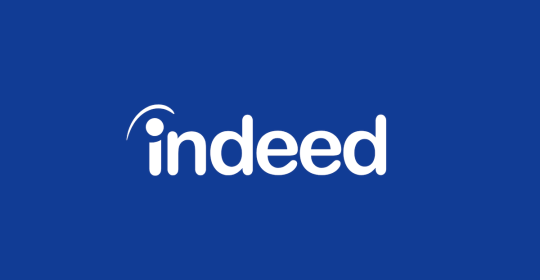According to Potentialpark’s Online Talent Attraction & Communication study 2011, the findings can be summarized as: LinkedIn is where it is expected to happen, but Facebook is where it actually happens. Does the social network overtake the business networks as the number one platform to interact with talent?
The online war for talent has long reached social media. Employers are identifying popular platforms and networks as a “must have” in their talent communication strategy.
In 2011, Potentialpark surveyed more than 30,000 students and graduates worldwide and analyzed the online career presence of more than 500 companies in the US, Europe and Asia.
The first half of the story goes like this: In Europe, close to 100% of job seekers would like to interact with employers online. In the UK, when asked where online, job seekers prefer LinkedIn (42%) over Facebook (26%). When asked why, opinions like “stay away from me on Facebook” are the rule. Asked to explain their reservations towards Facebook, 70% of job seekers say that Facebook is “not the right place” to interact with employers, and 51% are “uncomfortable sharing private information”. This type of results have led many to believe that it is not advisable to be on Facebook as an employer.
The other side of the story however unfolds only when digging a little deeper. Yes, students and graduates say that business networks are the place where interaction should naturally happen. However, still relatively few of them have an account on LinkedIn, let alone one that they would update their profile and network as often as they do with their Facebook profile. And yes, job seekers do have reservations towards interaction on Facebook. But companies are learning to dispel them.
Already today, around one third out of 100 top employers in Europe have Facebook fan-pages for career purposes (a figure changing monthly to weekly). Many of them have 1,000 fans and more, and active dialogs and interaction with talents.
As a result, LinkedIn, that aspires to be the number one network for business- and career-related networking and is seen as the natural place for it, is about to be beaten by Facebook that never announced to be a platform for talent interaction. Why is that? How can this paradox be explained?
HR professionals experience Facebook to be the easier access to talent
Potentialpark has interviewed a number of HR professionals about their motivation to be active on Facebook, and where they see the difference. Some of the points that were frequently raised are:
- Recruiters report that they tend towards LinkedIn and other business networks for networking, screening and recruiting; however when it comes to employer branding activities and talent communication, especially with students, graduates and early career professionals, many prefer Facebook.
- The target group presence: Facebook offers the bigger audience (~30 million members in the UK vs. ~7 million on LinkedIn).
- Facebook is free for all members and requires no premium accounts to use certain functionality; also integration in career websites through feeds and the “like” button is easier.
- Employers avoid sending messages or friend requests, and rather follow a “let them come to us” strategy; interesting content on fan-pages leads to comments, discussions and more personal interaction, only at the scope and pace that the job seekers approve.
Employers mention LinkedIn and other business networks as the most natural place for interaction. But few students and graduates have an updated profile on LinkedIn. In fact they are on social networks, most of them, and more and more employers are flocking to Facebook.
Employers such as Microsoft or Ernst & Young have advanced content on their fan-pages such as testimonials, videos or a job search. They like that it is free - at least to use the platform and its functionality - and that it offers a broad range of tools to show the company as an attractive employer. Be it discussions, videos, jobs or a feed that can be implemented on other websites.
At the same time, many employers are missing advanced, open and intuitive solutions on business networks to communicate and interact with students and graduates. The most obvious reason for this is: business platforms have a different business model. It does not provide the full functionality to everyone, and then earn money with ads, but to charge for the access to people. Members need to pay for a premium account to use all advantages, or to post jobs. As an example, users are not allowed to refer to jobs in their personal accounts because this would compromise the commercial job section.
As a consequence, employers continue to use LinkedIn for recruiting, especially when hand-picking for executive positions, but discover more and more the value of social networks for branding and interaction with students and graduates.
It is not about party photos
Many headlines in 2011 read “Job seekers say: stay away from me on Facebook”, or “Candidates are afraid to be rejected for a job because of party photos in their profiles”. This however is only half the story.
Contacting someone is not at all what employers are doing on Facebook. Instead, they create fan pages that are meant to attract people with their content. It’s the job seekers that make the first step.
By visiting the profiles, clicking the like button or leaving a comment, they do not reveal anything about their private profiles. But their action becomes visible to their friends and to other visitors of the fan page, and this networking effect is what makes fan pages successful. Therefore it is interesting and unique content that makes the difference.
However this is also where the problems start: how to get the internal permission to interact with people in an environment that the company does not fully control? “For many employers, it is not about whether Facebook is right or not”, says Julian Ziesing, spokesperson at Potentialpark, “but how to get the internal support from their management and corporate communication.”
The biggest strength of social networks is also their biggest challenge. Communication on Facebook is instant and uncontrolled. “Employers need to say good-bye to yesterday’s idea of one-way communication where one side gets to control the message, if they want to be taken seriously on social media”, says Ziesing. “Because otherwise the same discussions are being held elsewhere on the internet, but without them.”
Who leads the competition?
In their survey, Potentialpark identified 19 criteria in 6 categories that job seekers find important on Facebook fan pages. Based on these expectations, a selection of 12 thought-leading companies were audited, and Allianz, Microsoft and L’Oréal came closest to meeting the expectations.
Allianz for instance offers a wide range of information, personal contacts and a job matching tool, but at the same time allows for casual and unmoderated comments and discussions on their wall.
Microsoft on the other hand, already having collected more than 37,000 “likers”, runs quick polls with career-relevant questions, shows event photos from “behind the scenes” and has integrated their YouTube channel offering dozens of video testimonials.
After initial research in 2011, Potentialpark will go one step further for 2012 and make social and business networks as well as mobile recruitment and communication part of their annual study about Online Talent Attraction & Communication, surveying around 30,000 students and graduates worldwide, and analyzing the online career presence of more than 500 companies. February 2012 will not only see the ranking of the best career websites and online applications, but also the companies with the best Facebook fan pages, mobile career websites and apps, according to job seekers’ preferences.
Some of the companies mentioned above have a head-start, however this may not hold for long in the age of social media. The new recruiting seasons will see countless launches and updates. The question is: who will meet the demands of the job seekers better than their competitors?






